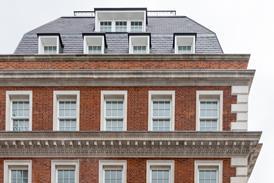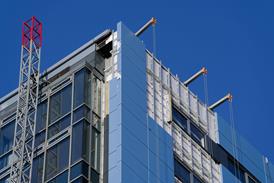The Lebanese have started rebuilding but the final cost may be higher than estimated
The war may be over but the Lebanese now have the huge task of rebuilding the country.
“Lebanon is slowly returning to normality,” says Muhyiddin Itani, partner in charge of Davis Langdon’s office in Beirut.
It’s business as usual for Davis Langdon. Everyone has returned to work and all pre-war schemes back on track, including the new Grand Hyatt and Hilton Hotels.
Cyril Sweett has been in the region since 2002 and kept its offices open throughout the conflict. It works with partner DG Jones, a cost consultant in the Middle East since 1961. Cyril Sweet director of international business development Jimmi Bradbury says his company is targeting major growth from the firm’s international ventures, including Lebanon.
No shortage of materials
Raw material and construction equipment have been pouring in since the blockades were lifted and the airport and port re-opened.
Added to this, the previous problem of labour shortage has been solved. “There is now an abundance of labour as there are no longer any restrictions on labour force coming in from across the Syrian border,” says Itani.
The most important thing right now is to get people’s lives back to normal
Jimmi Bradbury, Cyril Sweett
The task is huge but already underway. Much of the work will be building homes, schools and hospitals. Vital infrastructure projects include building a new sewage system, plus roads and bridges. Among them is Medreij Sofar, the highest bridge in the Middle East, built four years ago at an estimated cost of $15m (£8m). “It will take around a year to rebuild the bridges and three to reconstruct the buildings,” says Itani.
The cost of full reconstruction will likely exceed the $3bn originally predicted. “It could possibly be closer to $3.5bn (£1.85bn),” admits Itani.
Bradbury agrees that the rebuilding process has been rapid, but that “these things always cost more than predicted”.
Funding has been pouring in from Europe, the US and the gulf states of Saudi Arabia, Kuwait and Qatar, as well as from private national and international donors. US agency Overseas Private Investment Corporation and private bank Citigroup have said they will invest $160m (£84m) in Lebanese small and medium-sized companies. The sum comes on top of $250m (£132m) in aid pledged by the White House.
The French are building temporary steel bridges to replace bombed bridges and help with the flow of materials, and the Saudis have built 1,000 prefabricated homes for refugees.
At a press conference with Lebanese Prime Minister Fuad Siniora in Beirut last month, Tony Blair said Britain had pledged more than £40m to the rebuilding of Lebanon.
But now the country faces a bigger problem. The United Nations has reported that Lebanon is experiencing an environmental disaster on a massive scale.
It has been a huge environmental catastrophe, with oil and fuel spilling into the Mediterranean
Muhyiddin Itani, Davis Langdon, Beirut
At the request of the Lebanese government, the United Nations Environmental Program (UNEP), an international team of experts funded by Norway and Switzerland, has arrived in Lebanon to assess several problem sites. These include the massive oil spill that has contaminated around 80 miles of the Mediterranean coast extending as far as the Syrian beaches. It may take a year, warns the Lebanese government, to clean up the damage, but a decade for the environment to recover fully.
“It has been a huge environmental catastrophe,” says Itani, “with oil and fuel spilling into the Mediterranean. Greenpeace is doing a lot as is the Lebanese government.”
Assessing the damage
The UNEP team is also expected to assess: Beirut International Airport, where repeated Israeli bombing set fuel tanks alight, the Maliban glass factory, which was destroyed by an air raid, and 22 petrol stations damaged during the war. It will also look at general environmental damage caused by collapsed buildings.
Lebanon’s problems, though, are far from solved. A recent UN report indicates that about 200,000 people in southern Lebanon remain unable to return to their homes due to the level of destruction.
“This used to be a beautiful place. We are a small country but unfortunately subject to so much political turmoil,” says Itani.
“The most important thing right now is to get people’s lives back to normal with general relief programmes and rebuilding damaged buildings,” says Bradbury. “Then we can think about constructing new buildings.”
Source
QS News




















No comments yet